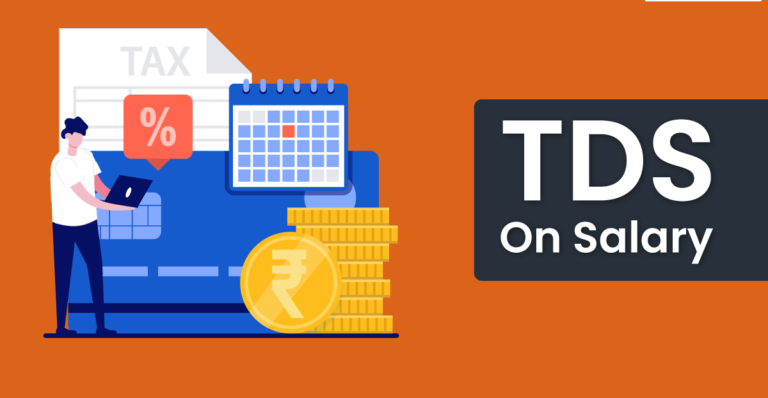Maximizing Tax Savings with Section 54 (A)of the Income Tax Act: A Comprehensive Guide
Section 54 of the Income Tax Act, 1961, offers significant tax relief to individuals and Hindu Undivided Families (HUF) on capital gains arising from the transfer of a residential property. This provision is aimed at encouraging taxpayers to reinvest their capital gains into purchasing or constructing new residential properties, thereby fostering the growth of the real estate sector and ensuring taxpayers have a roof over their heads. In this blog, we will delve into the intricacies of Section 54, covering its provisions, amendments, and relevant case laws to provide a thorough understanding of this crucial tax benefit.
What is Section 54?
Section 54 provides an exemption on long-term capital gains arising from the sale of a residential house if the gains are reinvested in purchasing or constructing another residential house within specified time frames. The primary objective of this section is to encourage the reinvestment of sale proceeds into new residential properties.
Key Provisions of Section 54
1. Eligibility:
- The exemption under Section 54 is available to individuals and HUFs.
- The capital gains must arise from the transfer of a residential property, which is categorized as a long-term capital asset.
2. Conditions for Exemption:
- The taxpayer must purchase a new residential house within one year before or two years after the date of transfer of the original house.
- Alternatively, the taxpayer can construct a new residential house within three years from the date of transfer.
3. Amount of Exemption:
- If the entire capital gain amount is reinvested in the new residential property, the entire capital gain is exempted from tax.
- If the amount of capital gain is greater than the cost of the new property, the excess amount is taxable as long-term capital gains.
4. Multiple Properties:
If the capital gain does not exceed ₹2 crore, the taxpayer can opt to purchase or construct two residential houses instead of one. This option can only be exercised once in a lifetime.
5. Utilization of Capital Gains Account Scheme (CGAS):
If the capital gains are not utilized for the purchase or construction of a new house before the due date of filing the income tax return, the amount must be deposited in the Capital Gains Account Scheme (CGAS).
6. Recent Amendments:
For transactions from the assessment year 2024-25, the cost of the new residential house for claiming exemption is capped at ₹10 crore. Any amount exceeding this limit will be taxable.
7. Additional Benefits:
Section 54 also allows for exemption in case the new property is purchased or constructed outside India, making it beneficial for NRIs and Indian residents planning to move abroad.

Legislative Amendments and Circulars
Several amendments and circulars have shaped Section 54 to its current form. Notable amendments include:
Finance Act, 1978:
Introduced sub-section (2) and clarified provisions.
Finance Act, 1982:
Extended the construction period from two to three years.
Finance Act, 1985:
Provided further clarifications and benefits under specific conditions.
Finance Act, 2023:
Capped the exemption at ₹10 crore for the cost of the new asset.
The Central Board of Direct Taxes (CBDT) has also issued various circulars to provide clarity and guidance on the application of Section 54, ensuring taxpayers can effectively utilize this provision.
Important Case Laws
Several judicial pronouncements have clarified the application and interpretation of Section 54:
CIT v. D. Ananda Basappa:
Held that multiple residential units purchased out of capital gains can be treated as one residential house for the purpose of exemption.
CIT v. Rajesh Kumar Jalan:
Clarified that the due date for depositing unutilized capital gains includes the extended period under section 139(4).
DIT v. Mrs. Jennifer Bhide:
Allowed exemption for properties purchased in the joint names of the assessee and her spouse if the entire consideration was paid by the assessee.
Practical Implications and Tips for Taxpayers
1. Plan Ahead:
- To maximize the benefits under Section 54, plan the sale and subsequent purchase or construction of a new property carefully.
- Ensure compliance with the time frames specified for reinvestment to avoid losing the exemption.
2. Utilize the CGAS:
If immediate reinvestment is not possible, deposit the capital gains in the CGAS to safeguard the exemption.
3. Keep Detailed Records:
Maintain accurate documentation of the sale and purchase/construction transactions, including proof of investment and utilization of capital gains.
4. Consult a Tax Professional:
Given the complexities involved, consulting a tax professional can help navigate the nuances of Section 54 and ensure compliance with all provisions.
Additional Scenarios and Examples
1. Example 1: Sale and Purchase Timeline
Scenario:
Mr. A sells his residential property on January 1, 2024, and makes a capital gain of ₹50 lakh. To claim the exemption, he needs to either purchase another residential property by January 1, 2026, or construct a new house by January 1, 2027.
Action:
Mr. A decides to buy a new property worth ₹55 lakh in December 2025. Since he reinvests the entire capital gain, he is eligible for full exemption under Section 54.
2. Example 2: Partial Investment
Scenario:
Mrs. B sells her house and makes a capital gain of ₹80 lakh. She purchases a new house worth ₹60 lakh.
Action:
Since the new house is worth less than the capital gain, Mrs. B will get an exemption of ₹60 lakh under Section 54. The remaining ₹20 lakh will be taxable as long-term capital gains.
3. Example 3: Multiple Properties
Scenario:
Mr. C, who has capital gains of ₹1.5 crore, decides to invest in two residential properties worth ₹75 lakh each.
Action:
Since his total capital gain is less than ₹2 crore, and he is opting for this benefit for the first time, Mr. C can claim exemption under Section 54 for both properties.
Frequently Asked Questions (FAQ) on Section 54
Q1. Can HUFs claim exemption under Section 54?
Yes, both individuals and Hindu Undivided Families (HUFs) can claim exemption under Section 54.
Q2. What happens if I sell the new house within three years of purchase or construction?
If the new house is sold within three years of its purchase or construction, the exemption claimed under Section 54 will be revoked, and the capital gains will be taxable.
Q3. Can I invest the capital gains in more than one residential property?
Yes, if the capital gains do not exceed ₹2 crore, you can invest in two residential houses. This option can be exercised only once in a lifetime.
Q4. Is it mandatory to use the sale proceeds to purchase or construct the new house?
No, it is not mandatory to use the exact sale proceeds. However, the amount equivalent to the capital gains should be reinvested to claim the exemption.
Q5. Can I claim exemption if I buy an under-construction property?
Yes, investing in an under-construction property qualifies for exemption, provided the construction is completed within three years from the date of transfer of the original property.
Q6. What if I fail to reinvest the capital gains within the specified period?
If you fail to reinvest the capital gains within the specified period, you can deposit the unutilized amount in the Capital Gains Account Scheme (CGAS) before the due date of filing the income tax return.
Q7. Is there a limit on the cost of the new house for claiming exemption?
Yes, for transactions from the assessment year 2024-25, the cost of the new house for claiming exemption is capped at ₹10 crore.
Q8. Can I claim exemption for a house purchased in a relative’s name?
Yes, the exemption can be claimed even if the new house is purchased in the name of a relative, as long as the investment is made by the taxpayer.
Q9. Are there any special provisions for NRIs under Section 54?
NRIs are also eligible for exemption under Section 54, provided the new house is purchased or constructed in India.
Q10. How is the exemption calculated if I construct a new house on a plot I already own?
The cost of the land and the construction cost of the new house will be considered together for calculating the exemption under Section 54.
Q11. What if I purchase a new house before selling the old one?
You can still claim the exemption under Section 54 if you purchase a new house within one year before the sale of the old house.
Q12. Can the exemption be claimed for properties purchased outside India?
As per the amendments applicable from the assessment year 2020-21, the exemption can be claimed for properties purchased or constructed outside India.
Conclusion
Section 54 of the Income Tax Act provides a valuable opportunity for taxpayers to save on long-term capital gains tax by reinvesting in residential properties. Understanding the detailed provisions, legislative amendments, and relevant case laws can help taxpayers make informed decisions and optimize their tax liabilities. Whether you are planning to sell your residential property or looking to invest in a new one, leveraging the benefits of Section 54 can significantly enhance your financial planning and tax efficiency.
For more insights and detailed information on other sections of the Income Tax Act, visit SmartTaxSaver and stay updated with the latest tax-saving strategies and tips.




